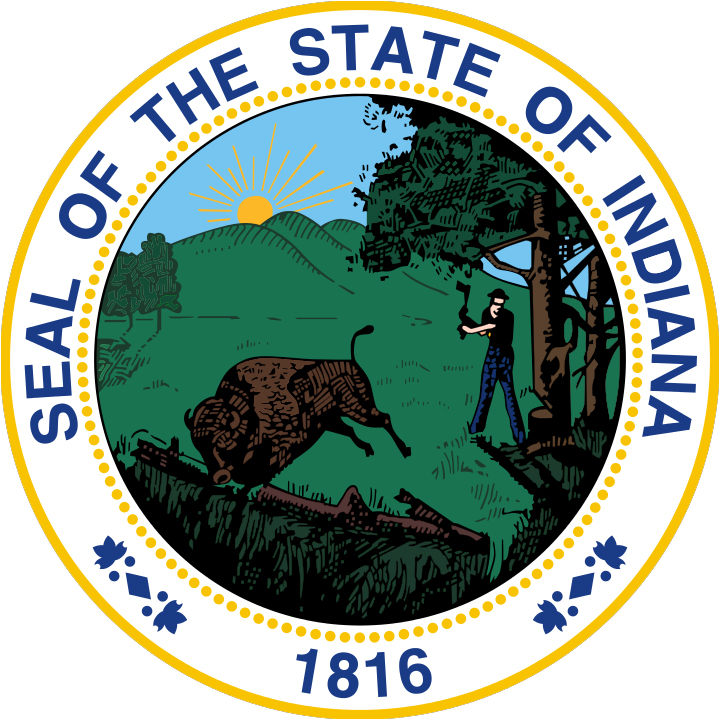
AG Rokita Obtains $26B Opioid Agreement with Johnson & Johnson et al.
Indiana communities can receive up to $507 million if Indiana communities opt into a Johnson & Johnson settlement under pending legislation
Attorney General Todd Rokita today announced the final approval of a $26 billion opioid agreement with the nation’s three major pharmaceutical distributors — Cardinal, McKesson, AmerisourceBergen — and Johnson & Johnson.
Indiana communities can receive up to $507 million if Indiana communities opt in to the state’s settlement under pending legislation in the Indiana General Assembly that gives them until July to do so.
“We have worked exhaustively with other states and Indiana cities, counties, and towns to secure this settlement,” Attorney General Rokita said. “These funds will go toward helping Hoosier communities fight the drug crisis, helping bolster local law enforcement, drug task forces, regional treatment hubs, and other important programs. This is a huge win for Indiana.”
The defendants will start releasing funds to a national administrator on April 2, 2022, and money will start flowing to state and local governments in the second quarter of 2022.
In Indiana, the current settlement structure splits the funds into several segments, amounting to a 50-50 split between the state and local communities.
First, 30 percent of the Johnson & Johnson settlement funds can be used however local communities and the state want to use those funds. Of that amount, half goes to local communities, and half goes to the state.
Second, the other 70 percent is designated for opioid abatement efforts in local communities. State leaders decide how to allocate half that amount — or 35 percent of the total — and local governments decide how to allocate the other half of that total.
“I am pleased that 577 cities, counties, and towns, representing 89% of those eligible, have joined the settlement. I extend my thanks to them for their leadership on behalf of their communities,” Attorney General Rokita shared.
But there are large cities like Fort Wayne and Indianapolis and other communities like Shelbyville and Franklin who, on the advice of their outside attorneys, have created an unneeded risk to their residents by not joining the Johnson & Johnson settlement. Those attorneys are attempting to secure bigger fees for themselves, while other similar communities across the nation have been losing in court.
“The few Indiana cities that refused to get into the settlement should get into the settlement immediately if a future opportunity presents itself, just as I have publicly advised them for over a year, despite being threatened by their attorneys for attempting to communicate directly with them.”
The agreement marks the culmination of three years of negotiations to resolve more than 4,000 state and local government claims across the country. It is the second-largest multistate agreement in U.S. history, second only to the Tobacco Master Settlement Agreement.
Fifty-two states and territories have signed on to the Johnson & Johnson agreement as well as thousands of local governments across the country.
In addition to the funds, Cardinal, McKesson, and AmerisourceBergen will:
- Establish a centralized independent clearinghouse to provide all three distributors and state regulators with aggregated data and analytics about where drugs are going and how often, eliminating blind spots in the current systems used by distributors.
- Use data-driven systems to detect suspicious opioid orders from customer pharmacies.
- Terminate customer pharmacies’ ability to receive shipments, and report those companies to state regulators, when they show certain signs of diversion.
- Prohibit shipping of and report suspicious opioid orders.
- Prohibit sales staff from influencing decisions related to identifying suspicious opioid orders.
- Require senior corporate officials to engage in regular oversight of anti-diversion efforts.
Johnson & Johnson is required to:
- Stop selling opioids.
- Not fund or provide grants to third parties for promoting opioids.
- Not lobby on activities related to opioids.
- Share clinical trial data under the Yale University Open Data Access Project.
Attorney General Rokita has prioritized the fight against the opioid epidemic. In February of 2021, he announced a $12.5 million settlement for Indiana with national consulting firm McKinsey & Co. — part of a $573 million multistate settlement stemming from the company’s role in working with opioid companies such as Purdue Pharma. Those funds are being used to support prevention, education, and treatment efforts across Indiana.






